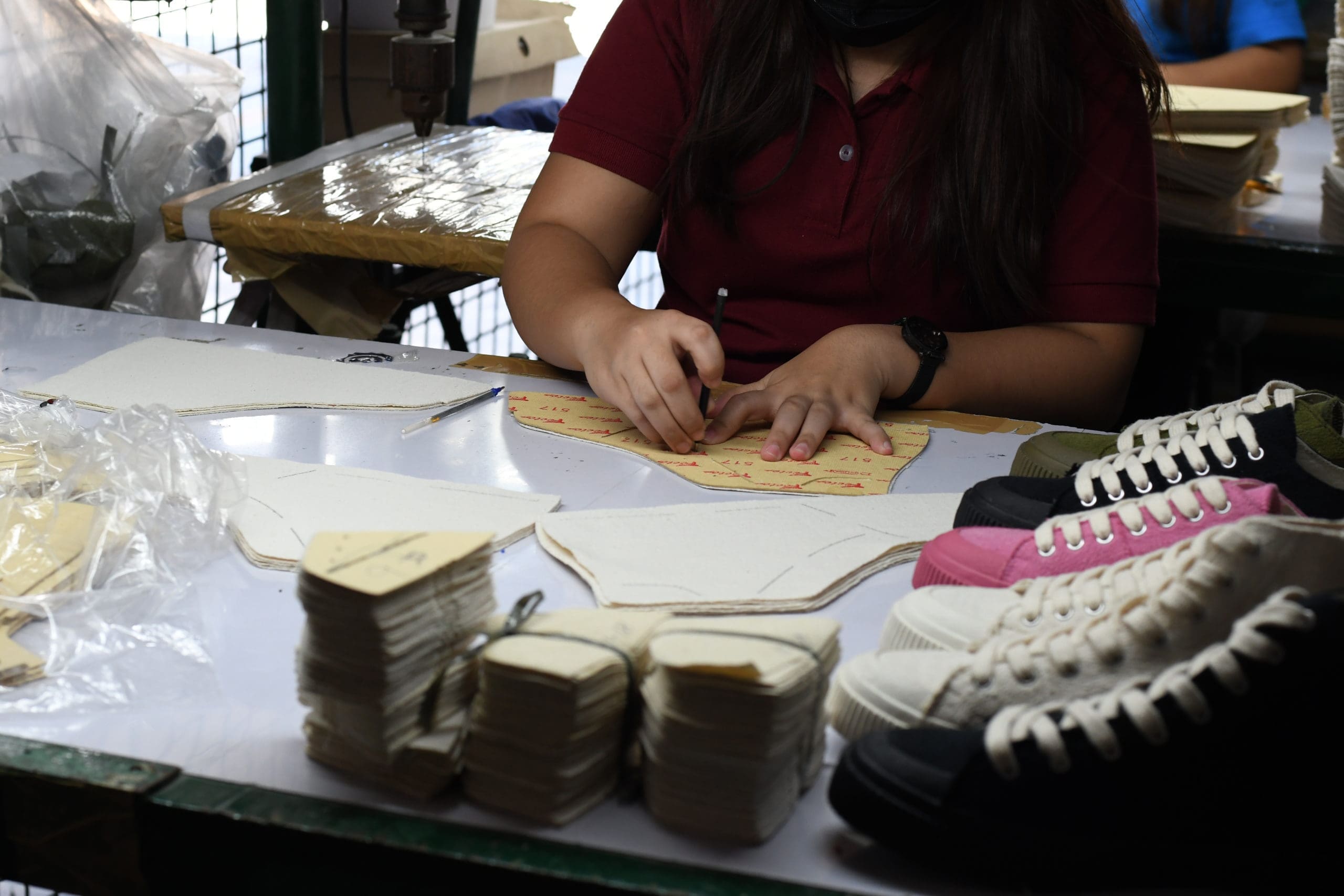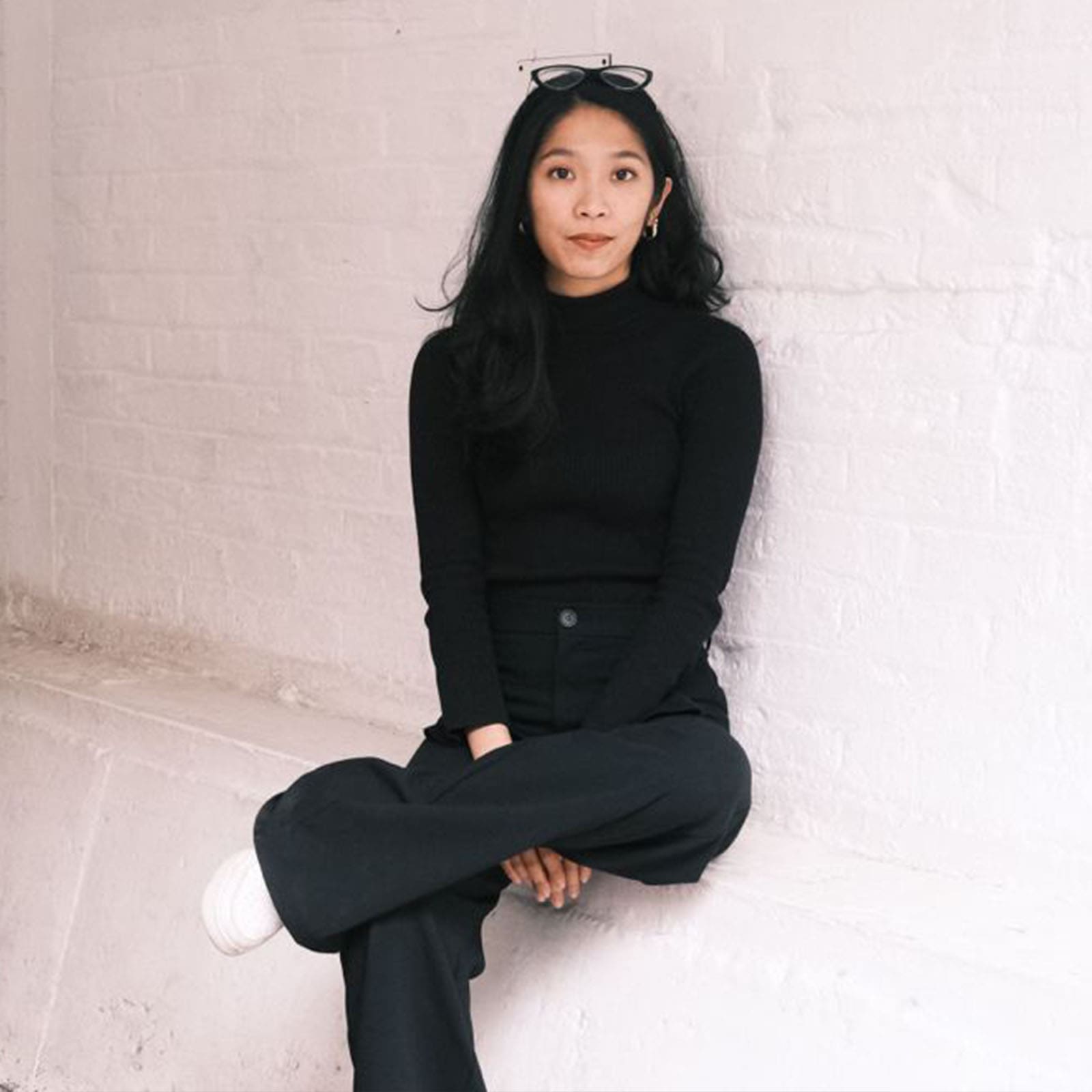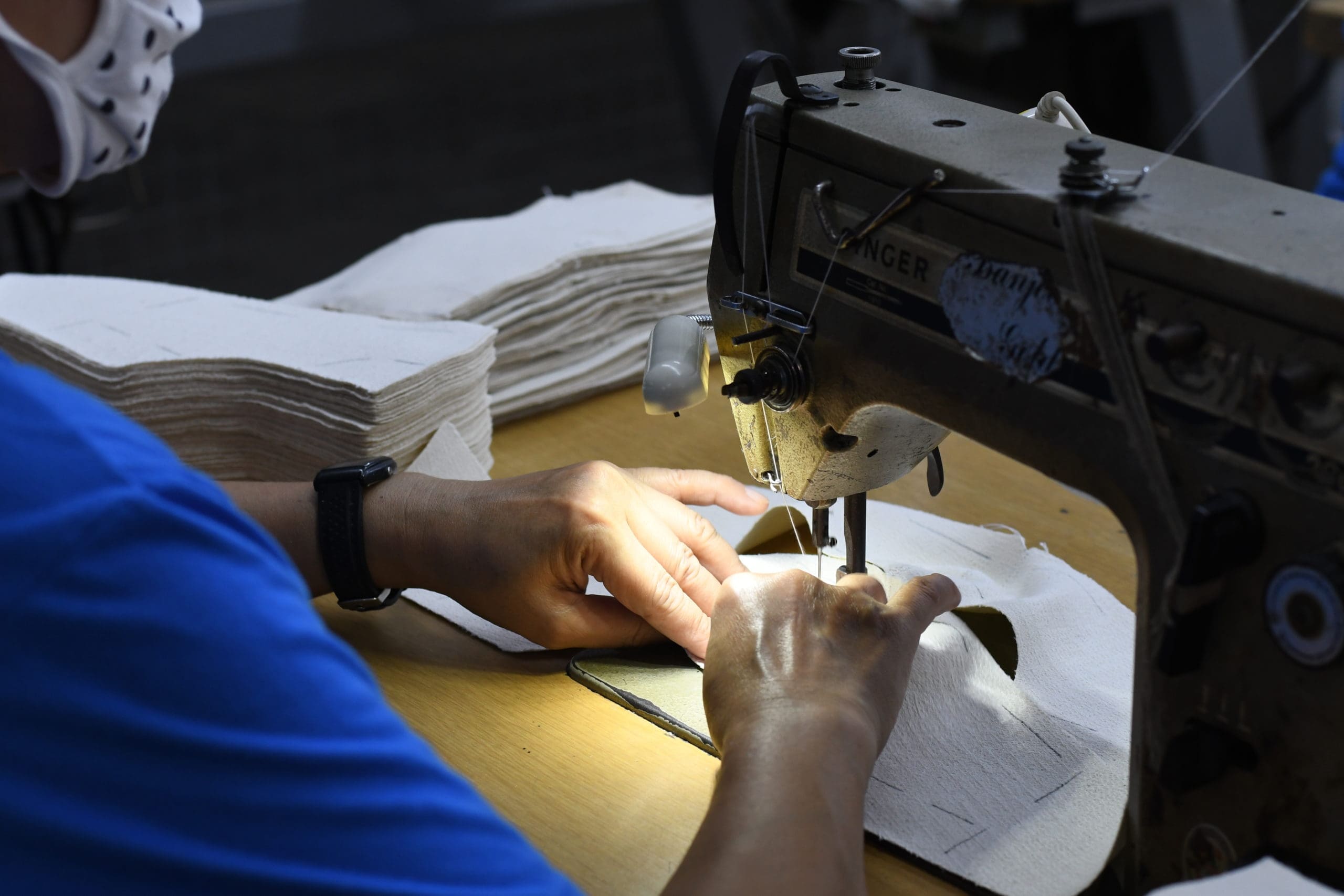Philippine Fashion Coalition’s fundraising project: a handmade brooch, with a blue enamel accent on gold toned brass.
Courtesy of Philippine Fashion Coalition
Implementing the bill is another matter altogether.
During the height of the pandemic, as theaters, museums, galleries, and event venues shut their doors, the arts and culture industry around the world went silent. Many art venues were forced to adapt in whatever ways possible—including shifting to digital or virtual mediums. However, the rest had no choice but to shut down. In an effort to draw attention to the need for support, UNESCO penned the line, “In moments of crisis, people need culture.”
The Creative Industries Bill was proposed to address the burgeoning concern and to ensure that creatives received the much-needed support. Nine sectors were outlined, including Audiovisual, Digital Media, Creative Services, Design, Publishing, Print Media, Performing Arts, Visual Arts, Traditional Expressions, and Cultural sites.
Around the time multiple congress hearings began to be held across various creative industries, the Philippine Fashion Coalition (PFC) was founded, which went on to represent the fashion sector under the bill. The PFC was the main business support organization that presented at the congressional hearing to represent the fashion industry in aid of the law itself. Some of the officers and board members who helped with the hearings include designer and creative entrepreneur Esme Palaganas, creative director and designer Carissa Evangelista Cruz, sustainability and socio-entrepreneurs Michael Claparols and Noreen Bautista, and fashion event producer Jackie C. Aquino.

In August 2022, The Creative Industries bill was finally enacted into law as the Philippine Creative Industries Development Act, RA11904. PFC president and founding member, Jackie Aquino says that with the bill, he hopes that local creatives and products will finally receive their much-needed protection and preference. This is one small step toward progress, but it’s progress nonetheless.


Lia Savillo
But what does this mean for creatives? How can our industries directly benefit? Esme Palaganas, who was the Policy and Planning Chairperson for the PFC, was involved with the congressional hearings for the Creative Industries Bill. Vogue Philippines speaks to her to give us an explainer behind the initiative.
Enabling an environment for growth
According to Palaganas, also a designer and founding board member of PFC, the Philippine Creative Industries Development Act is a piece of legislation “that will create an enabling environment for Filipino creatives to legitimize creative work as a viable career path for the current and future generations.”
Palaganas explains that every sector outlined in the bill is to have a representative for each domain that “[Has] fair and responsible foresight across all industries under its domain.” These representatives will form a council that will develop long-term plans per sector aimed at developing and sustaining the creative industries.
The bill also highlights the importance of Intellectual Property Rights and training for the protection of indigenous traditional cultural properties used for commercial purposes. Institutions like the DepEd, and TESDA will also be in talks to support these initiatives.

The London-based creative practitioner and entrepreneur says, “Data is king and I do think this is one of the main important things that the Council is tasked to do.” For this reason, the bill also outlines a partnership between the Philippine Statistics Authority to help set up effective data collection and management systems. This will help the industries keep better track of their work while building analytics that can help manage progress.
Another important facet that Palaganas outlines is that the council formed under the Creative Industries Bill will have the ability to borrow and raise funds for long-term and short-term projects. This gives the council the ability to support and subsidize artists and initiatives that can benefit Manila’s arts and culture scene.
Though legislation has passed, the real work is about to begin. The next hurdle is how these plans can be implemented.
For updates on the Philippine Fashion Coalition and the Creative Industries Bill, check their social media.
